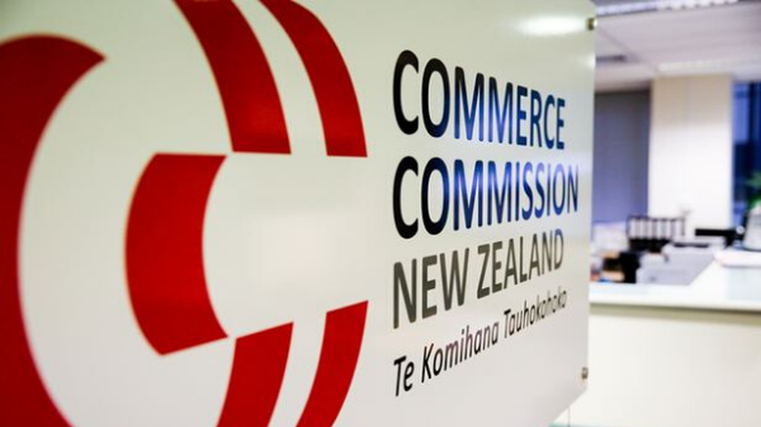Regulator slams big banks

The country’s first competition study into personal banking has revealed a two-tier sector with limited competition, and no disruptive forces to drive change and deliver consumer benefits.
John Small, chairman of the Commerce Commission, says the draft report of its market study shows an apparent focus by four major banks on maintaining margins has resulted in underinvestment in core technology platforms, low levels of innovation, stable market shares and sustained high profitability.
He adds that “ongoing disruption needs to be baked in” to address the lack of obvious and aggressive competition for major banks that means Kiwis are missing out.
Small says the commission’s analysis shows the status quo is a “stable two-tier oligopoly” where the top tier – ANZ, ASB, BNZ and Westpac – enjoy sustained high levels of profitability compared with global peers.
“In a well-functioning banking market, we’d expect to see strong competition driving innovation and choice, rather than the price-matching strategies we see in New Zealand, which result in stable market shares.
“The lack of a disruptive force in our banking market means competition between the majors is sporadic and not sustained.”
Small says while there are periods of relatively intense competition between the big banks, this tends to be linked to events, such as changes to interest rates triggering price-matching rather than price-beating behaviour.
“Ongoing disruption is key to promoting enduring competition. Today’s maverick could be tomorrow’s oligopolist, so the aim should be to ensure contestability over the longer term.”
Recommendations for change
The Commerce Commission’s draft recommendations are designed to promote enduring competition. They include measures to more directly improve outcomes for Kiwis.
“Many of the issues we’ve identified are systemic, so this isn’t about quick fixes,” says Small. “But we would expect to see sustained and enduring improvements in competition across personal banking services over time.”
Its draft recommendations are aimed at reducing barriers to competition for those seeking to challenge the majors – by encouraging market entry and expansion for innovative players, and empowering consumers to make informed decisions about providers.
“We’re keen to hear from stakeholders about the directions set out in our draft report. Ultimately, we want New Zealanders to be better off, and confident they are getting great value, clear choices and innovative offerings.”
The way forward
Draft recommendations are grouped into four areas reflecting regulatory, behavioural and strategic impediments that make it difficult for providers to enter and expand in the market.
One is improving the capital position of smaller providers and Kiwibank because access to capital is a key constraint affecting their ability to grow and compete.
The draft report recommends the Reserve Bank reviews its prudential capital settings to ensure they are competitively neutral and smaller players can better compete.
It also suggests Kiwibank’s owner considers increasing its access to capital and converting it into a disruptive competitor.
Open banking, meanwhile, has the potential to revolutionise the industry over the medium to long term. However, fintechs are facing severe barriers and are unable to provide disruptive innovation.
ComCom recommends setting a clear deadline to have open banking fully operational by mid-2026 and having regulatory backstops available so minimum requirements are delivered to support the acceleration of open banking.
It also recommends the government does more to reduce barriers imposed by the anti-money laundering regime on banks working with fintechs.
The report recommends policymakers and regulators responsible for personal banking explicitly and transparently consider the competitive effects of their decisions.
Its recommendations are intended to reduce unintended consequences of decisions on competition, and ensure any trade-offs with other policy goals, such as financial stability and consumer protection, are considered.
The draft report also sets out how consumers will directly benefit from reduced barriers to switching providers. Recommendations include better tools and services to help consumers get the best deal, an enhanced switching service and introducing a basic bank account service accessible to all people.
The draft findings suggest some customer demographics are more affected by the lack of competition in personal banking than others. This includes those who can struggle to access basic bank accounts, as well as those who have difficulty understanding terms and conditions, interest rates, and comparing products and services.
Consultation by regulator
The regulator was directed to open a market study into personal banking by the Minister of Commerce and Consumer Affairs in June 2023 to examine how well competition is working and consider options for enhancing it for the long-term benefit of Kiwis.
The commission has analysed internal bank documents and engaged with a wide range of stakeholders during its study.
“There’s been significant interest in this market study,” says Small. “Our thinking and preliminary findings have been guided by the feedback and evidence we’ve received.
“This has included broad engagement with the sector – major and smaller banks, as well as non-bank participants – and communities and demographics who have taken the time to share their experiences.”
The commission’s draft report is subject to consultation prior to its final report being published in August 2024. Consultation opens on March 22 and closes on April 18. Click here for the full report.





